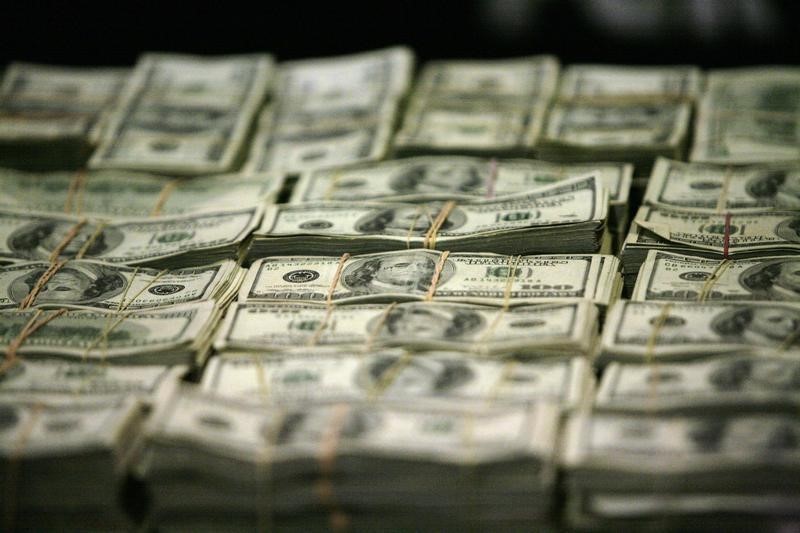Investing.com - The dollar pushed lower against a basket of other major currencies on Tuesday, as the release of disappointing U.S. data sparked fresh concerns over the strength of the economy, fuelling uncertainty over the timing of a rate hike.
The U.S. Commerce Department said that retail sales rose 0.9% last month, disappointing expectations for a gain of 1.0%. Retail sales fell by 0.5% in February, whose figure was revised from a previously reported fall of 0.6%.
In a separate report, the Commerce Department said that producer prices increased 0.2% last month, in line with forecasts and after falling 0.5% in February.
Year-over-year, the producer price index declined 0.8% in March, meeting expectations and following a drop of 0.6% in the preceding month.
The U.S. dollar index, which measures the greenback’s strength against a trade-weighted basket of six major currencies, was down 1.03% to 98.71.
EUR/USD rallied 1.26% to 1.0703, off session lows of 1.0532.
The euro was boosted after the International Monetary Fund raised its growth forecast for the euro zone in 2015 to 1.5%, up from 1.2% previously. The fund believes that the weaker euro and the fall in oil prices will bolster growth.
The IMF left its forecast for global growth this year unchanged at 3.5%, but warned that the recovery is “moderate and uneven”.
Earlier Tuesday, data showed that the euro zone's industrial production increased 1.1% in February, easily surpassing forecasts for a gain of 0.4% and after a decline of 0.3% in January.
Year-on-year, industrial production rose at a rate of 1.6% in February from a year earlier, compared to expectations for a 0.7% increase and after rising 0.4% the previous month.
The pound also erased earlier losses, with GBP/USD climbing 0.81% to 1.4797.
The Office of National Statistics reported on Tuesday that the annual rate of U.K. consumer inflation remained unchanged at a record low zero in March, unchanged from the previous month and in line with forecasts.
The ONS said that March’s consumer prices index dropped by 0.01%, which it rounded up to zero.
Core inflation, which strips out volatile food and energy costs, slowed to an almost nine-year low of 1.0% last month from 1.2% in February. Economists had expected underlying inflation to remain unchanged.
Elsewhere, the dollar was lower against the yen and the Swiss franc, with USD/JPY retreating 0.83% to 119.13 and with USD/CHF declining 1.06% to 0.9678.
The Australian, New Zealand and Canadian dollars turned higher, with AUD/USD up 0.69% to 0.7641 and NZD/USD jumping 1.21% to 0.7544, while USD/CAD tumbled 1.16% to trade at 1.2451.
